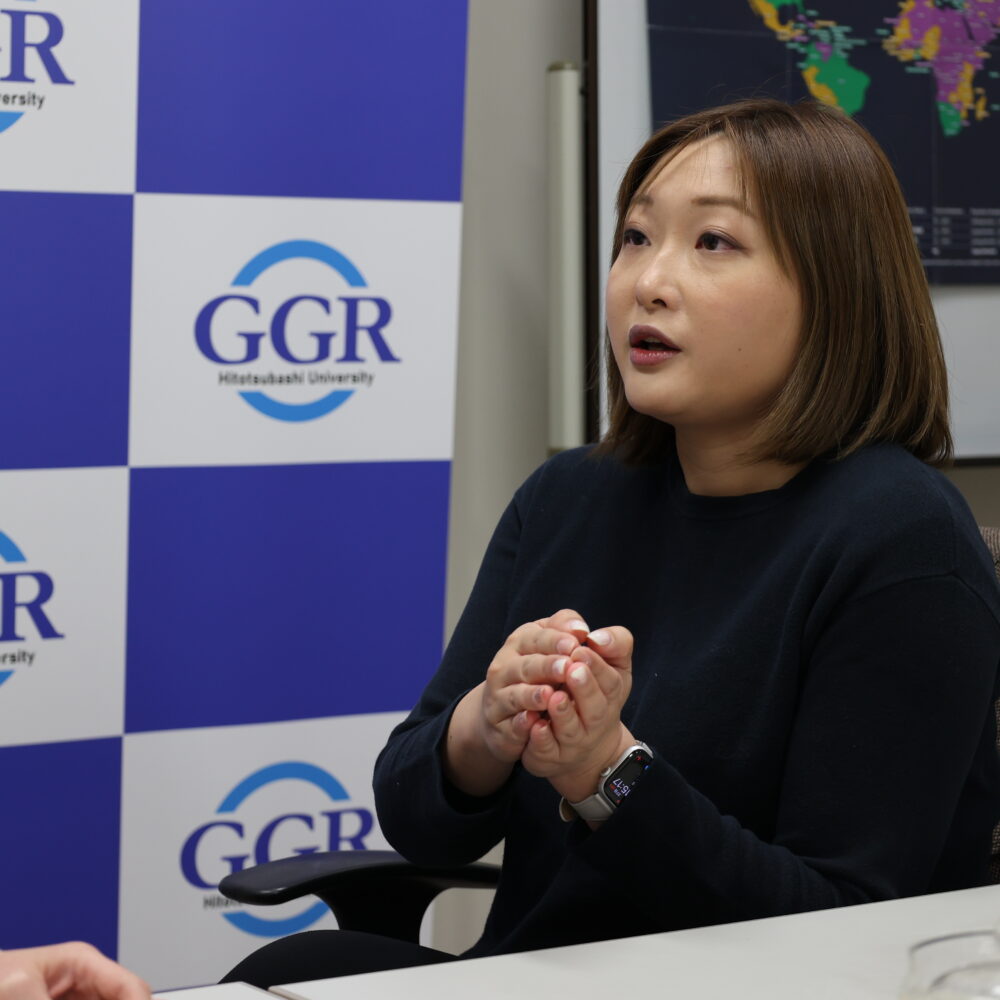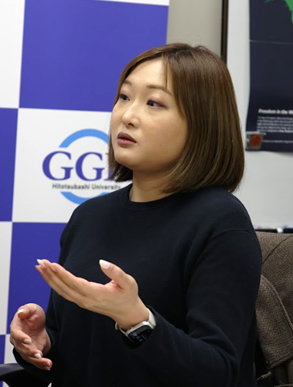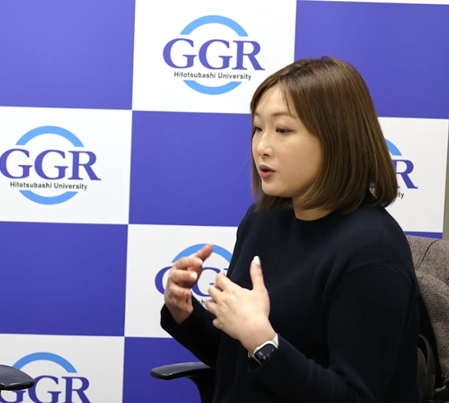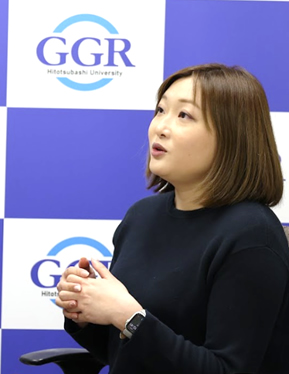

Empowering Hong Kong: Journey of Community Building and Struggle for Freedom
Interviewer and writer: Sulastri
(Master’s student, School of International and Public Policy, Hitotsubashi University)
August 22, 2024
*This paper was written based on an interview conducted on March 27, 2024.
 Freedom of assembly and expression have been restricted in Hong Kong as the aftermath from the Umbrella Movement Protest in 2014 and the anti-extradition bill protests in 2019. The National Security Law of 2020 imposed further restricted freedoms, causing great concern among many both inside and outside Hong Kong. Among them is Ms. Tanaka.
Freedom of assembly and expression have been restricted in Hong Kong as the aftermath from the Umbrella Movement Protest in 2014 and the anti-extradition bill protests in 2019. The National Security Law of 2020 imposed further restricted freedoms, causing great concern among many both inside and outside Hong Kong. Among them is Ms. Tanaka.
Initially uninvolved in politics and with a background in business, Ms. Tanaka was drawn into the movement when she felt there must be something wrong in Hong Kong for the Umbrella Movement to happen. Hong Kong people do not want to be led by the Chinese government and there is obviously a lot of difference between Hong Kong and China. But it feels like China wants to make Hong Kong the same as China, for instance by changing the education system, and the citizens are not comfortable with this direction.
Ms. Tanaka was living in Japan when the protest in 2019 happened and she understood that “People need to act, and we need foreign countries to push back to Hong Kong to change the situation. Hong Kong is so small, we understand that we have to get foreign countries’ support.” After she had lived in Japan for four years, Ms. Tanaka and her colleagues started to gather groups of Hongkongers to hold demonstration and campaigns about Hong Kong democracy. At the time, it was unthinkable that the movement would go on for so long. There were already two million people on the street and the government was just ignoring the situation.
Community Building for Hongkongers
With her colleagues, she began the Japan Hong Kongers Association. The association conducts many campaigns about Japanese culture aimed at creating bridges between the Hong Kong people with the Japanese and merging them into the community. People sometimes wonder what makes someone want to get involved in activism like this; or they question the wisdom of bringing the other countries’ issues to their own country. “That is our job and that is why we need to do our activities in Japan, because we want to change their minds. The strength of the Japanese system makes it the most democratic country in the East Asia and even in the whole of Asia. So not only for Hong Kong, but also for the other countries in Asia as well, Japan should take its role as leader of democracy.”
 Japan and Hong Kong have a very strong cultural connection: a lot of Hongkongers have a great love for Japan, and Japan on its side often cheers for Hong Kong. For example, at the very beginning of the movement, there was a street demonstration attended by a thousand people, which was already huge if we look at population numbers. Learning about this show of support, the Hong Kong people were super happy to know that in the country they love, there were a thousand people on the street supporting them. The involvement of the Japanese locals was especially notable if we compare with other countries, even the UK which has a large Hong Kong population. But in Japan, forty to fifty percent of the protest participants were Japanese people. Thus, the community is more supportive here, especially in Tokyo.
Japan and Hong Kong have a very strong cultural connection: a lot of Hongkongers have a great love for Japan, and Japan on its side often cheers for Hong Kong. For example, at the very beginning of the movement, there was a street demonstration attended by a thousand people, which was already huge if we look at population numbers. Learning about this show of support, the Hong Kong people were super happy to know that in the country they love, there were a thousand people on the street supporting them. The involvement of the Japanese locals was especially notable if we compare with other countries, even the UK which has a large Hong Kong population. But in Japan, forty to fifty percent of the protest participants were Japanese people. Thus, the community is more supportive here, especially in Tokyo.
It is not easy for Hong Kong people to blend with society when they first come to Japan. Hong Kong people are quiet, they are very independent. Unlike the overseas citizen or diaspora of other countries, they do not always group together. Since 2019, nevertheless, more Hong Kong people have been drawn to meet with other Hongkongers to express their feelings about what is happening back at home, and then also to talk about their new life in Japan. Obviously, as there are more Hong Kong people moving to Japan, so also are there more people who have been involved in the movement. “We think of our target, which is to preserve the Hong Kong culture. We want to have social gatherings for Hong Kong people and bridge the Japanese with the Hong Kong people.”
The organization offers Cantonese classes for Japanese individuals who are keen to learn due to their exposure to Hong Kong movies and music from the 80s and 90s. The goal is to bridge language barriers and facilitate cultural exchange. This initiative not only teaches Cantonese but also fosters opportunities for participants to practice both languages through various activities. “Hong Kong people’s adeptness at connecting with other countries or political organizations overseas is a concern for mainland China, leading to a desire on their part to strongly control Hong Kong people abroad more than in mainland China itself. They want to affect civil society, not only from the government but also from the underground to the surface. As the government has learned from history, they will prevent all democratic inclination in Hong Kong and maintain firm control.”
 People often do not understand why we are involved in this kind of struggle, says Anna Tanaka, and not only people who are close to us, but people in general. They will ask why we are bringing the issue of Hong Kong to Japan. But as the results demonstrate that our continued action has been helping the lives of other people, especially Hongkongers, people begin to understand and even give us support.
People often do not understand why we are involved in this kind of struggle, says Anna Tanaka, and not only people who are close to us, but people in general. They will ask why we are bringing the issue of Hong Kong to Japan. But as the results demonstrate that our continued action has been helping the lives of other people, especially Hongkongers, people begin to understand and even give us support.
“Our group isn’t focused on politics, but having members gives us a strong voice for advocacy. Because we have our organization, we can stand up for Hongkongers in Japan when we need to advocate for them. Here we develop what we want to do, you have the community, and it is up to the community to think about what you are going to do next. I believe that is what a democratic system is.”
Anna Tanaka, born and raised in Hong Kong, pursued her university education in the UK and the US before gaining professional experience in the international business sector. Originally based in Hong Kong, she relocated to Japan in 2015. Since 2019, she has been organizing democratic activities for Hong Kong within Japan. Recognizing the significance of fostering a community among the Hong Kong diaspora in Japan, she co-founded the Japan Hongkongers Association in 2020 with Hong Kong people residing in Japan.
